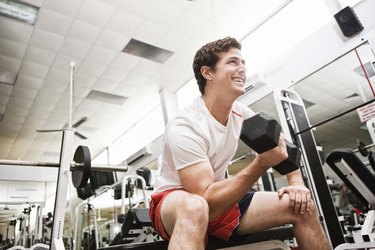
One of the most common ways to train opposing muscle groups is to use antagonistic supersets. When a muscle is working, such as the biceps in a biceps curl, the opposite muscle -- your triceps -- are resting, known as the antagonist. Performing a set for your biceps, immediately followed by a set for your triceps is known as an antagonistic superset. Former elite bodybuilder Dace Draper used this approach in his training, and advises that it's great for building muscle mass, keeping your heart rate up and reducing the amount of time you have to spend in the gym.
Legs
Video of the Day
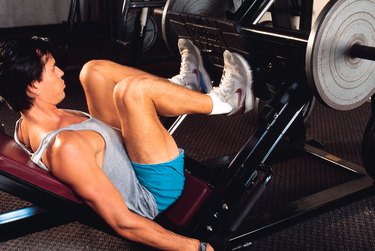
Your legs are one of the most demanding body parts to train both mentally and physically, so it's best to train them first. For your quadriceps, choose a squat variation, such as a back squat, front squat or box squat. For the opposing muscle -- your hamstrings, perform either a stiff legged deadlift with dumbbells or a barbell, or a machine leg curl. Perform five repetitions on the squat, and eight on your hamstring exercise and add weight to each set. The weights on your top sets should be heavy enough that you struggle with the last few reps, but not so heavy that your form deteriorates.
Video of the Day
Chest and Back
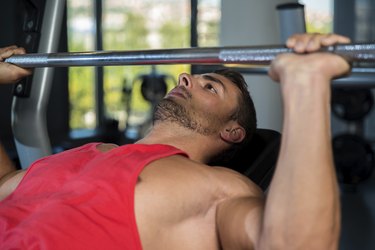
Choose flat, incline or decline presses using a bar or dumbbells for your chest, and seated rows, dumbbell rows or barbell rows for your back exercise. Perform five sets of 10 reps on each exercise. Make sure you rest as little as possible. Ideally the only rest you should have is if you have to walk from one area of the gym to another or need to set up equipment.
Arms
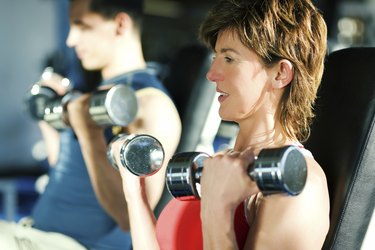
Arms are the least demanding of your exercise pairings, so keep the repetitions high, and the rest time low. Perform 12 reps of a biceps curl variation immediately followed by reps of dips, cable pushdowns or dumbbell extensions. Do this superset three times. According to Charles Poliquin, author of "Winning the Arms Race," antagonistic training on your arms helps you develop increased motor control of your muscles and improves your work capacity.
Considerations
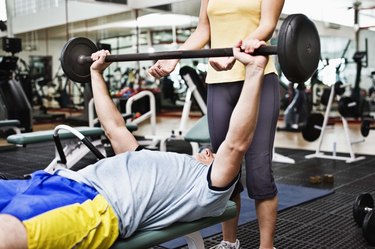
While this workout trains six of your major muscle groups, there are some that are left out. This is because it is difficult to perform antagonistic training on some muscles. Shoulders, for instance cover the front, back and side of your body, so don't have an opposite muscle group. If you want to train your shoulders though, perform an overhead press variation, followed by a vertical pulling exercise, like a chinup or lat pulldown. Abdominal and lower back pairings also work well, but muscles like your traps, forearms and calves will have to be trained on their own, or paired with a non-opposing muscle group.